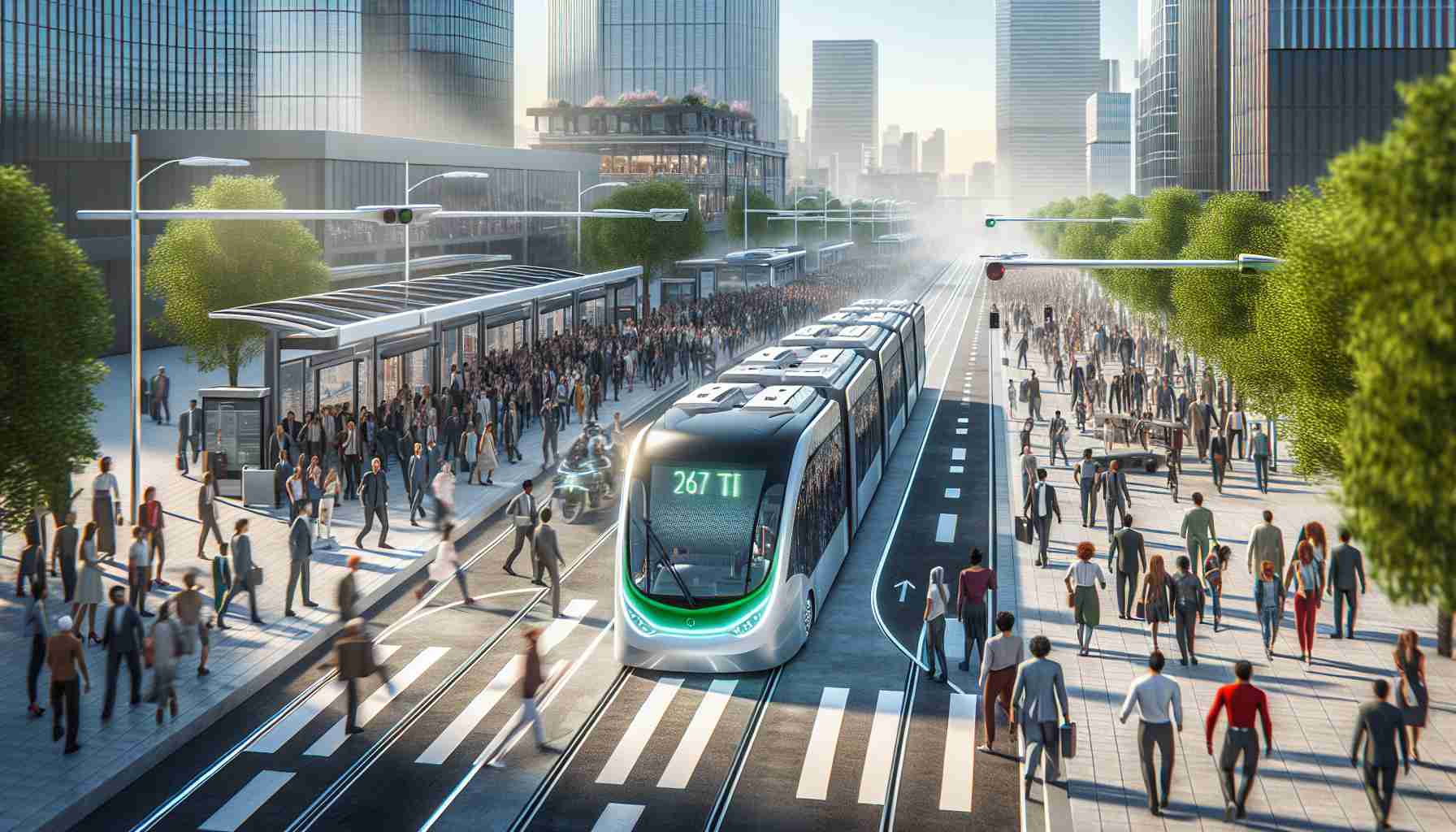Solaris is making headlines this festive season. The company has officially signed a significant contract with King County Metro, a prominent transit authority. This partnership will see the introduction of pure zero-emission buses (ZEBs) into the fleet, furthering the push for sustainable public transportation solutions.
This bold venture signifies Solaris’s inaugural entry into the U.S. market for zero-emission buses. It showcases the company’s commitment to innovative and environmentally friendly transport options, crucial in the quest to reduce carbon footprints and combat climate change. Delivery of these cutting-edge vehicles is slated for the latter half of 2026, marking a pivotal moment in the evolution of public transit systems.
The collaboration is expected to not only enhance the region’s transport capabilities but also to set a benchmark for other transit systems across the country. As cities across America increasingly prioritize sustainability, this agreement positions King County Metro at the forefront of this green movement.
With the global shift toward eco-friendly technology, this contract serves as a reminder of the importance of investing in clean energy solutions. As the program unfolds, both Solaris and King County Metro aim to inspire other urban areas to follow suit, ultimately contributing to a more sustainable future for public transportation.
Solaris Partners with King County Metro to Transform Public Transportation with Zero-Emission Buses
Introduction to the Partnership
Solaris, a leading name in sustainable transport solutions, has officially entered the U.S. market by signing a groundbreaking contract with King County Metro. This partnership will introduce a new fleet of pure zero-emission buses (ZEBs) aimed at revolutionizing public transportation in the region. The move not only aligns with global efforts to combat climate change but also reflects an increasing trend among cities to prioritize sustainability.
Key Features of the Zero-Emission Buses
The zero-emission buses that Solaris will provide are equipped with advanced technology designed to minimize environmental impact. Key features include:
– Battery Technology: These buses utilize cutting-edge battery systems that offer extended range and faster charging capabilities.
– Smart Mobility Solutions: Integrated with smart technology for real-time tracking and enhanced passenger experience.
– Durability and Safety: Built to withstand the rigors of urban transportation, ensuring safety and reliability.
Benefits of the Partnership
1. Environmental Impact: The introduction of ZEBs will contribute significantly to reducing greenhouse gas emissions in the Seattle metropolitan area.
2. Economic Opportunities: This contract supports local job creation in the clean energy sector and positions King County as a leader in sustainable transit solutions.
3. Public Health: By transitioning to zero-emission technology, the initiative will improve air quality in the region, promoting better health outcomes for residents.
FAQs Regarding the Transition to Zero-Emission Buses
Q1: What is a zero-emission bus?
A1: A zero-emission bus (ZEB) is a vehicle that produces no tailpipe emissions, typically powered by electricity or hydrogen fuel cells.
Q2: When will the new buses be operational?
A2: Delivery of the zero-emission buses is expected in the latter half of 2026.
Q3: How will this impact local public transportation fares?
A3: While the initial costs of implementing ZEBs are significant, long-term savings on fuel and maintenance may help stabilize or even reduce transit fares.
Pros and Cons of Zero-Emission Buses
Pros:
– Significant reduction in air and noise pollution.
– Low operating and maintenance costs.
– Potential for subsidies and grants from government programs aimed at sustainability.
Cons:
– High initial investment and infrastructure needs for charging stations.
– Limited range compared to traditional buses unless battery technology advances significantly.
Market Trends and Innovations
The shift toward zero-emission public transportation systems is gaining momentum as cities recognize the necessity of sustainable practices. This partnership between Solaris and King County Metro aligns with broader trends in various urban areas, where transit authorities are actively pursuing cleaner, greener fleets.
As battery technology continues to innovate, and more manufacturers enter the space, the costs of zero-emission vehicles are expected to decrease, making them a viable option for more transit agencies across the U.S.
Conclusion
The collaboration between Solaris and King County Metro marks a significant milestone in the transition to sustainable public transportation in the U.S. With the potential to inspire similar initiatives nationwide, this endeavor underscores the importance of investing in zero-emission technologies as part of the global effort to tackle climate change and promote public health. For further information and updates, visit Solaris.


















